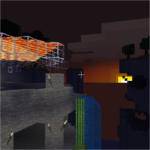- Debian: No such file or directory — а файл есть
- Try to run the following command
- [Errno 2] No such file or directory: ‘ffprobe’: ‘ffprobe’ #404
- Comments
- fantess commented Jul 12, 2019
- Steps to reproduce
- Expected behavior
- Actual behavior
- Your System configuration
- Is there an audio file you can include to help us reproduce?
- BlackLight commented Jul 23, 2019 •
- frozamilan1899 commented Aug 24, 2020
- BlackLight commented Aug 24, 2020 •
- frozamilan1899 commented Aug 25, 2020
- Windows Docker Error — standard_init_linux.go:211: exec user process caused «no such file or directory» #9
- Comments
- joaotnlima commented Jan 17, 2020
- riggraz commented Jan 17, 2020
- joaotnlima commented Jan 17, 2020 •
- riggraz commented Jan 17, 2020
- joaotnlima commented Jan 17, 2020 •
- riggraz commented Jan 19, 2020
- riggraz commented Jan 25, 2020
- versedpro commented Jun 5, 2020 •
- PhilippWuerfel commented Jun 10, 2020 •
- vr6tdi commented Jul 9, 2020
- diegosurita commented Jul 11, 2020
- Kyle-Williamson-Dev commented Jul 18, 2020
- matthias-ijewski commented Sep 24, 2020
Debian: No such file or directory — а файл есть
Здравствуйте, уважаемые. Скачал btsync (у меня arm, по ссылке Linux ARM тут), положил в /usr/bin и не могу запустить:
Как так и что с этим делать?
P.S. Тоже самое происходит, если переместить исполняемый файл, например, в домашний каталог.
P.S.S. Debian Jessie, вот такая железка.
chmod +x точно не поможет?
apparmor, selinux, noexec?
noexec на разделе
такое бывает когда исполняемый файл например предназначенный для 32 битной архитектуры пытаются запустить в 64-битной системе
А что покажет file btsync ? Необязательно на самой железке.
apparmor, selinux, chattr — это что? Что посмотреть?
В общем, похоже-таки несовместимость архитектур. Придётся пересобирать из исходников. Источник: http://otvety.google.ru/otvety/thread?tid=1e74bf1617bdb4b6
Try to run the following command
I had the same issue on Cubieboard.
Try to run the following command:
sudo ln -s /lib/arm-linux-gnueabihf/ld-linux.so.3 /lib/ld-linux.so.3
На Debian 7.6.0 (Linux 3.2.0-4-amd64 #1 SMP Debian 3.2.60-1+deb7u3 x86_64 GNU/Linux) столкнулся с той же проблемой. Для запуска 32-битного приложения может потребоваться пакет ia32-libs-i386. Дебиан по умолчанию не дает его установить из-за зависимостей. Решается таким образом:
sudo dpkg —add-architecture i386 sudo apt-get update sudo apt-get install ia32-libs-i386 (тянет за собой 60Мб зависимостей)
Источник
[Errno 2] No such file or directory: ‘ffprobe’: ‘ffprobe’ #404
Comments
fantess commented Jul 12, 2019
Steps to reproduce
linux o/s
installed my application under /Documents/
I don’t want to install ffmpeg as I need to upload application to the cloud using Cloud Foundry
I downloaded ffmpeg static binary and unpacked it under ./resources/ffmpeg
In the code, I configured
AudioSegment.converter = ‘./resources/ffmpeg/ffmpeg’
I tried including and excluding the executable
I also tried defining the absolute path to the file
Expected behavior
Then I run
audio = AudioSegment.from_mp3(filename)
Actual behavior
I get this error message:
[Errno 2] No such file or directory: ‘ffprobe’: ‘ffprobe’
It looks like it does not find the path to the executables
Your System configuration
- Python version: 3.7
- Pydub version: 0.23.1
- ffmpeg or avlib?: ffmpeg
- ffmpeg/avlib version: ffmpeg-4.1.4-i686-static.tar.xz
Is there an audio file you can include to help us reproduce?
You can include the audio file in this issue — just put it in a zip file and drag/drop the zip file into the github issue.
The text was updated successfully, but these errors were encountered:
BlackLight commented Jul 23, 2019 •
Are both the statically linked executables for ffmpeg and ffprobe present in your folder?
By default pydub builds the command for subprocess assuming that those executables are present in your PATH . If your executables are not in a PATH folder, then you’ll have to add your resources folder to the PATH environment variable before you launch your script. Overriding AudioSegment.converter in your code won’t probably work: there’s some code in pydub that relies on converter being exactly «ffmpeg» or «avconv». Additionally, a relative path like that won’t make it very robust if you launch your script from another folder.
frozamilan1899 commented Aug 24, 2020
did you solve this problem?
I met the same issue, and if you get any approach, would you please share it with me? Thank you.
BlackLight commented Aug 24, 2020 •
If you look at the logic to get the ffprobe executable you’ll notice that it simply relies on which .
IMHO there are more robust and portable ways to get if an executable is present in PATH (like for example exploring os.environ[‘PATH’] ), but this should be irrelevant for the actual functionality if you run pydub on Linux/MacOS.
Make sure that the ffprobe executable, which comes with ffmpeg , is present somewhere in your PATH . pydub will start working once it can find it.
frozamilan1899 commented Aug 25, 2020
If you look at the logic to get the ffprobe executable you’ll notice that it simply relies on which .
IMHO there are more robust and portable ways to get if an executable is present in PATH (like for example exploring os.environ[‘PATH’] ), but this should be irrelevant for the actual functionality if you run pydub on Linux/MacOS.
Make sure that the ffprobe` executable, which comes with ffmpeg , is present somewhere in your PATH`. pydub will start working once it can find it.
Thank you! It works for me, I fixed it with your approach.
Источник
Windows Docker Error — standard_init_linux.go:211: exec user process caused «no such file or directory» #9
Comments
joaotnlima commented Jan 17, 2020
This happens in windows environments.
To advance the topic you should edit all .sh files in the repo and change the EOL from CRLF to LF. This fixes the issue.
Then another bug appeared btw:
PG:Bad connection.
Added db to windows hosts and added port 5432 to the docker-file in ports for db.
Works in Windows now 😉
The text was updated successfully, but these errors were encountered:
riggraz commented Jan 17, 2020
Hey joaotnlima, thanks for posting!
standard_init_linux.go:211 is a well known issue for Windows users.
you should edit all .sh files in the repo and change the EOL from CRLF to LF
Yes, EOL are a problem in Windows. I think you wanted to say to change them from LF to CRLF.
Added db to windows hosts and added port 5432 to the docker-file in ports for db
Could you elaborate more on this, please? For the windows hosts you mean the host file c:\windows\system32\drivers\etc\hosts ?
joaotnlima commented Jan 17, 2020 •
Yes, EOL are a problem in Windows. I think you wanted to say to change them from LF to CRLF.
I believe you need to change them to LF — at least i did that.
Could you elaborate more on this, please? For the windows hosts you mean the host file
Yes correct. I believe there is a better way, but i just wanted it working right away
riggraz commented Jan 17, 2020
I tried your solution but it doesn’t work on my machine. I’m on Windows 10 Home and I’m using Docker Toolbox (because Docker Desktop is not compatible with Windows 10 Home). What OS and Docker are you using?
I believe you need to change them to LF — at least i did that.
Can you please check whether all files are in LF or just the ones you manually changed?
joaotnlima commented Jan 17, 2020 •
All files (.sh) are LF including Dockerfile and docker-compose.yml.
I’m using windows 10 Pro Version 10.0.18362 Build 18362
Docker Desktop 2.1.0.5 (40693)

riggraz commented Jan 19, 2020
Thanks for the information. In these day I’ve been pretty busy, I’ll try it out in a few days.
riggraz commented Jan 25, 2020
Unfortunately I was not able to make it work on my machine.
If you want, you can open a pull request with the changes to make it work under Windows. Then we’ll ask for other windows users to test it and, when it works, merge it.
versedpro commented Jun 5, 2020 •
Could you elaborate more on this, please? For the windows hosts you mean the host file
Yes correct. I believe there is a better way, but i just wanted it working right away
Would you mind to explain more about hosts of windows?
I faced a problem creating db.
PhilippWuerfel commented Jun 10, 2020 •
you should edit all .sh files in the repo and change the EOL from CRLF to LF
Yes, EOL are a problem in Windows. I think you wanted to say to change them from LF to CRLF.
Had the same issue on Docker
I changed my shell script on Windows 10 from CRLF to LF and that worked for me!
vr6tdi commented Jul 9, 2020
you should edit all .sh files in the repo and change the EOL from CRLF to LF
Yes, EOL are a problem in Windows. I think you wanted to say to change them from LF to CRLF.
Had the same issue on Docker
I changed my shell script on Windows 10 from CRLF to LF and that worked for me!
Same here, CRLF to LF helped to fix
diegosurita commented Jul 11, 2020
you should edit all .sh files in the repo and change the EOL from CRLF to LF
Yes, EOL are a problem in Windows. I think you wanted to say to change them from LF to CRLF.
Had the same issue on Docker
I changed my shell script on Windows 10 from CRLF to LF and that worked for me!
Same here, thanks!
Kyle-Williamson-Dev commented Jul 18, 2020
This happens in windows environments.
To advance the topic you should edit all .sh files in the repo and change the EOL from CRLF to LF. This fixes the issue.
Then another bug appeared btw:
PG:Bad connection.
Added db to windows hosts and added port 5432 to the docker-file in ports for db.
Works in Windows now 😉
I would like to know how you did this. I’m very new and this is my first time building a docker app. No idea what files I need to change or how. You say edit all .sh files. I only have one, my entrypoint.sh that the Rails Docker-Compose quickstart guide shows how to build the Dockerfile and stuff. I’ve built my rails app image, which is my portfolio I’m going to build, and got the server to start and everything on my laptop. But when I come to my desktop to pull the image down and docker-compose up, I’m getting this error we’re talking about in this thread. So what part of the file am I changing? am I REPLACING .sh? or adding the LF after it?
matthias-ijewski commented Sep 24, 2020
You can use this code in your dockerfile to fix line breaks:
RUN sed -i -e ‘s/\r$//’ /entrypoint.sh
Replace /entrypoint.sh with the path to the file with the suspected wrong line breaks.
You can’t perform that action at this time.
You signed in with another tab or window. Reload to refresh your session. You signed out in another tab or window. Reload to refresh your session.
Источник












